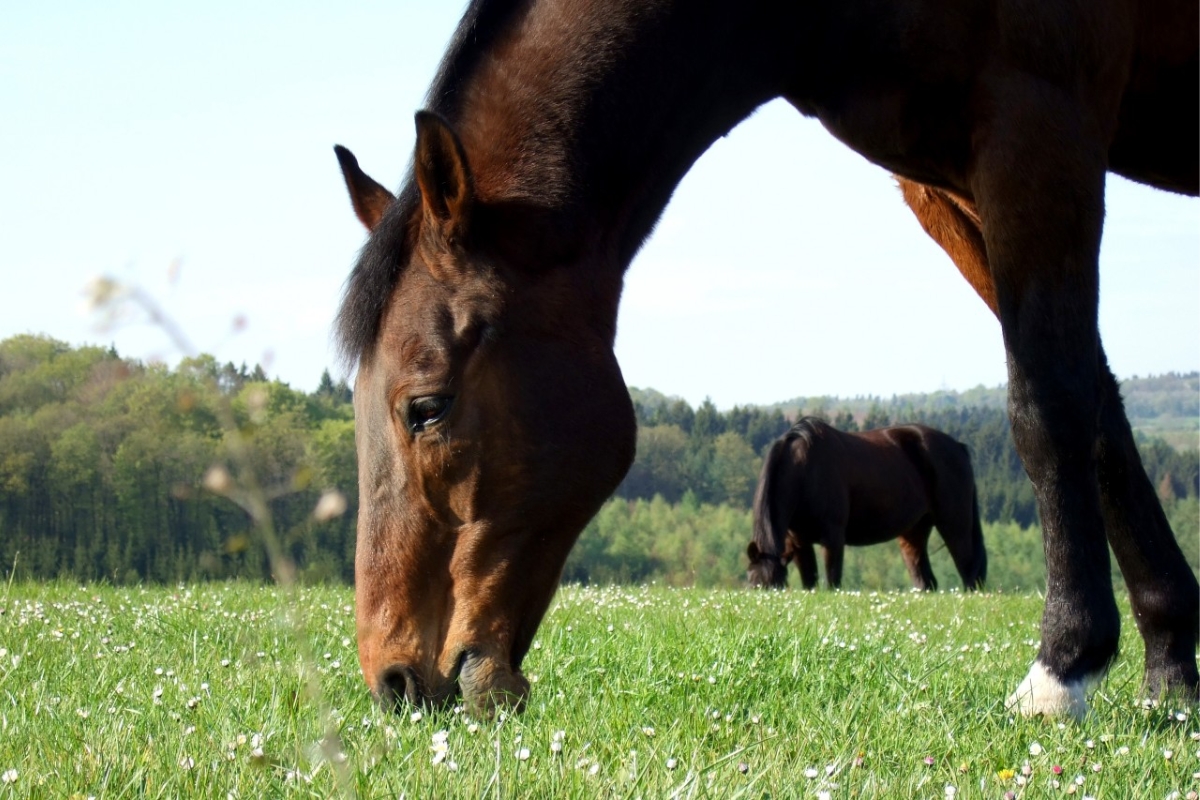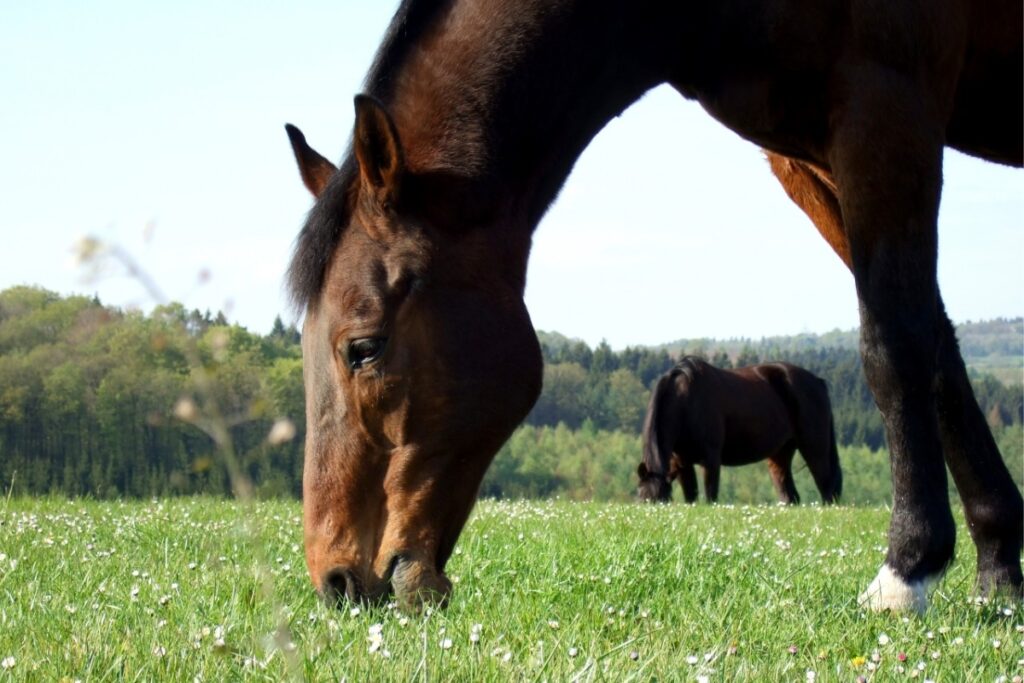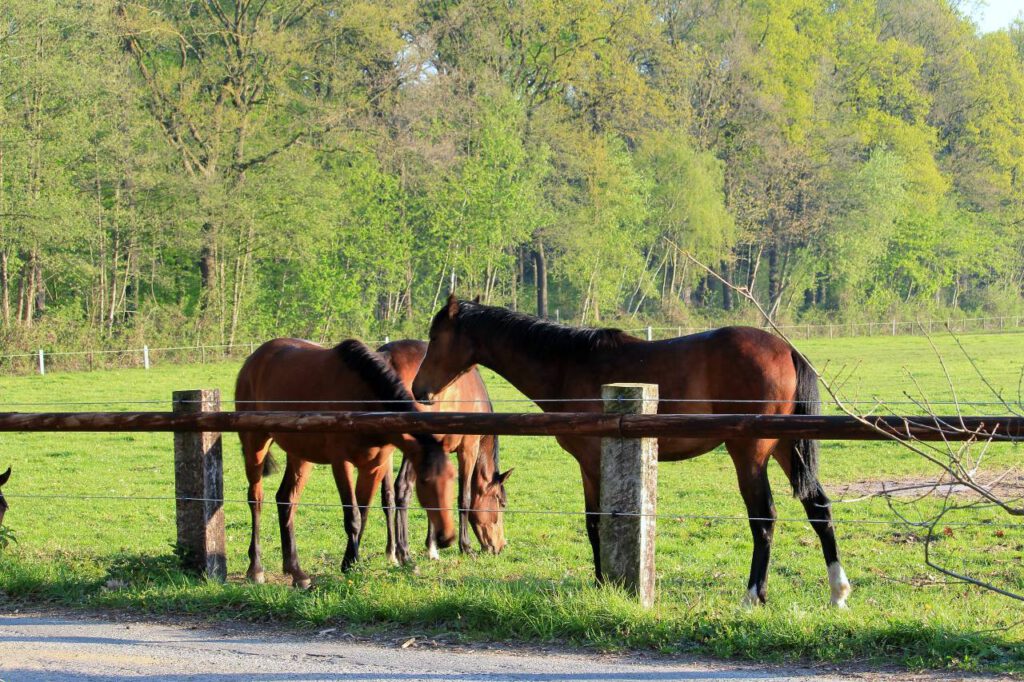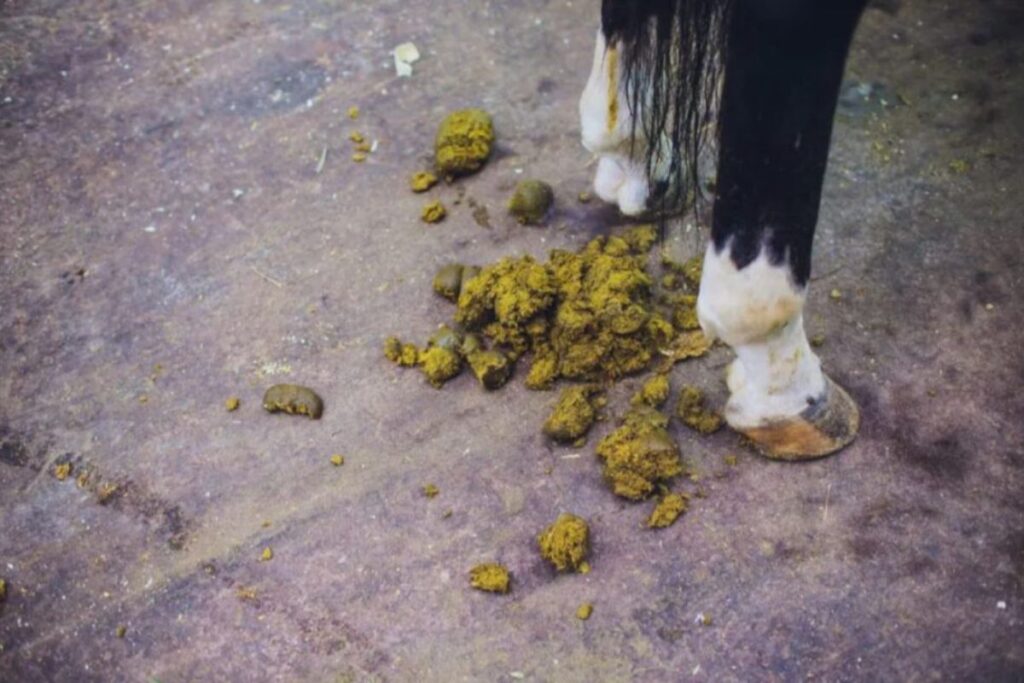Menu


The summer is the peak season for your horse to become infected with intestinal worms. Here you can learn more about how to deal with worms in the best way.
Horses that graze have worm species in the intestinal tract that spread along with the manure. Other horses become infected when they eat eggs and larvae during grazing. Therefore, horses not only infect themselves, but quickly spread eggs and larvae to other horses. A single mouthful of grass or a raindrop can contain several hundred larvae if the number of infections in the field is high.
You may also like to read: Field time: How many kilometers do horses walk every day?
Bloodworms and tapeworms are two types of parasites that typically affect the horse during the grazing period. It is known that the worms thrive best with temperatures above 15 degrees and high humidity. Therefore changing fields for the horses at regular intervals can help. This prevents the infection level of blood and tapeworms from becoming too high.

The vast majority of horses are infected with a worm infection. Horses are built with an immune system, which means that they are geared to cope with worm infestations. Without this kind of natural infection, the horse's immune system cannot develop normally.
When we as horse owners need to be vigilant, it is when the horse is infected with certain parasites. Or if the horse's resilience is reduced. In the case of a minor infection, reduced fitness may be one of the only signs. Whereas a severe infection will manifest itself in poor well-being, poor coat and weight loss as indicators. Very severe worm infections can, in the worst case, lead to the death of the horse.
In the quest to find the right balance in the horse's worm infection rate being appropriate, part of the strategy is to treat with worm paste. You do this to the extend, that the horse's own immune system can handle the rest. You can help keep worm infections down by maintaining good hygiene around the horse. It also helps to make sure that neither grass nor feed is in contact with manure.
An important strategy to avoid too high worm infection rates is to make sure that the horse is not forced to eat grass near the place in the field where they poop. Divide the paddock, change the horses around the paddocks regularly and remove poop from the field.

If you take a manure sample from the horse, it will reveal whether there are large or small amounts of worm eggs in the horse's poop. The best time to take a manure sample is in the middle of summer or early autumn. At this time the infection pressure with worm infections is highest. Depending on what the manure sample shows, you can, in collaboration with your veterinarian, decide on which medical worming treatment the horse should receive.